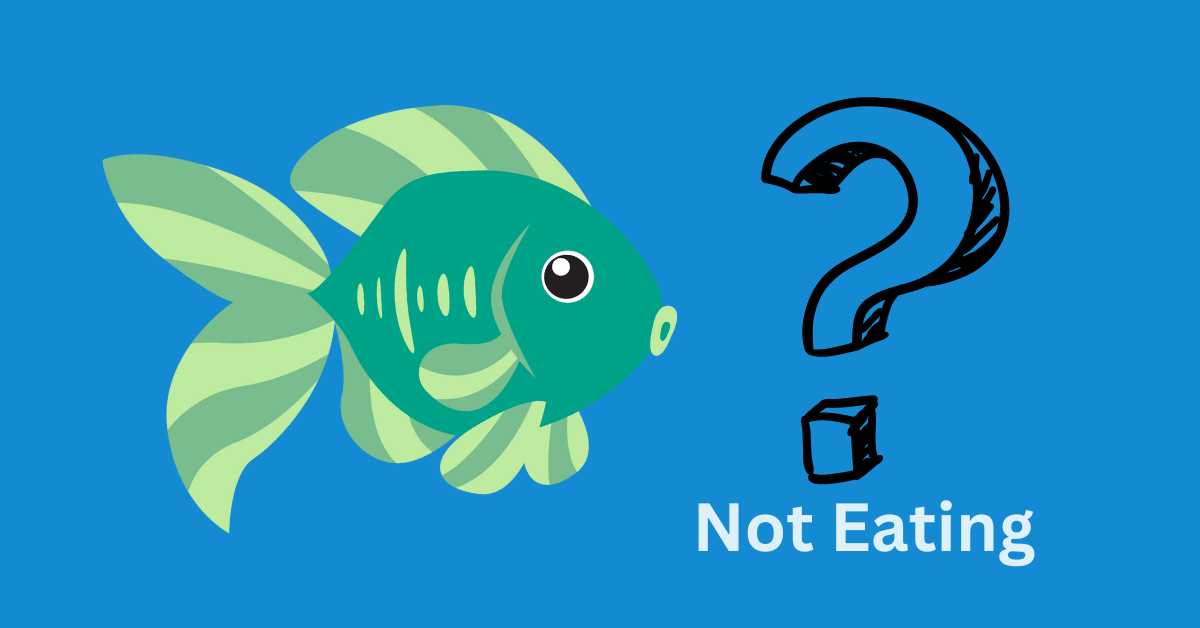
Angelfish are beautiful and fascinating creatures commonly kept as pets in home aquariums. While they are generally healthy and active, there may be times when your angelfish stops eating.
This can be a cause of concern for any pet owner, but before you panic, it’s important to understand the possible reasons why your angelfish is not eating.
Why Is My Angelfish Not Eating
Angelfish live happily and are healthy when they get the nutritious diet we provide them; however, it begins if they eat what we provide. It might make you worried if your angelfish refuse to eat. There are many causes, and these might affect your fish’s health.
Either they could be sick or have nutritional deficiencies[1], which are the reasons why your fish is not eating.
Fish need different foods, including a rich-protein and high-fiber diet, to stay healthy and keep their appetite physiologically fit.
Poor water quality, stress, and unfavorable environmental factors are also responsible for your fish’s disturbed appetite.
Fish may die if they repeatedly refuse to eat. physically unable to eat.
It’s essential for fish to eat when they’re hungry. That just means there’s a reason your fish stopped eating.
If don’t know why your angelfish stopped eating, the following are the reasons:
Poor water quality
Angelfish can adapt to minimal changes in water quality; however, they can’t deal with a lot of changes if they occur repeatedly.
To maintain good water quality, monitor the pH, ammonia, nitrate, and nitrite levels regularly.
Conduct regular water changes to keep the water clean and clear of any debris.
Sick Fish
When the fish is sick, loss of appetite is one of the common signs. In this case, the fish is unable to eat because of discomfort and trauma.
They will be able to diagnose and treat the underlying condition causing your angelfish to stop eating.
A few illnesses that affect angelfish are fin rot, Ich, hole in the head disease, velvet disease, etc.
Stress
To address stress-related issues, ensure that the water temperature and quality are stable and appropriate for your angelfish.
Provide plenty of hiding places in the tank and avoid overcrowding.
If your angelfish is being bullied by other fish in the tank, consider separating them or adding more hiding spots to diffuse any aggression.
Also read: angelfish hiding behind filter
Poor Diet
Another reason why angelfish may stop eating is because of a poor diet. Angelfish are omnivores and require a varied diet that includes both plant and animal matter.
If you are only feeding your angelfish one type of food, they may become bored and refuse to eat.
To address this, make sure you are providing your angelfish with a balanced diet that includes high-quality flake or pellet food, and live or frozen foods such as brine shrimp, bloodworms, or krill.
Also, read: angelfish not swimming around
Angelfish stopped eating and died
angel fish dying signs
Also, read: How long fish can live without food
Why are Angelfish spitting out the food?
As a pet owner, you do get worried about why your fish is spitting the food out.
There are several reasons listed below:
The Fish are Full
This is the common reason why your angelfish is spitting out the food. It’s natural that your angelfish will spit out the food if they are full and not hungry anymore.
Disliking the Food
Fish are picky eaters. They may spit out the food if they don’t like it.
Food Boredom
If you provide the same food every day, the fish will get bored and spit out the food.
Final Thoughts
There are several reasons why your angelfish not eating. By understanding these reasons and taking appropriate measures, you can help your angelfish regain its appetite and stay healthy. Remember to provide a stress-free environment, balanced diet, and good water quality, and seek veterinary care if necessary.